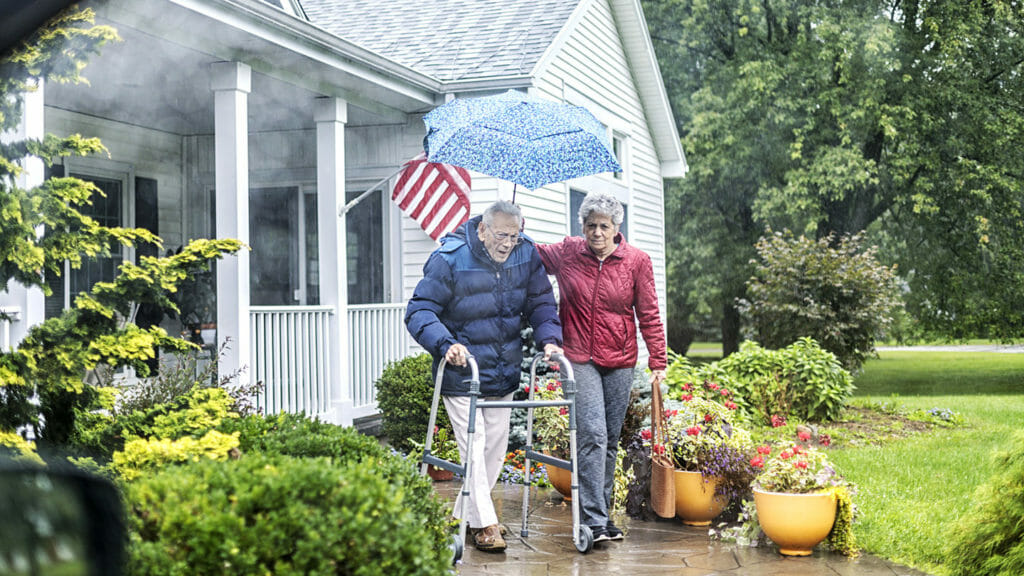
The number of veterans aged 85 or more years who are receiving care from the federal government is expected to grow 535% over the next 20 years, making access to assisted living and other long-term care options a growing area of support.
During Wednesday’s US Senate Committee on Veterans’ Affairs hearing on veterans’ access to long-term care, several witnesses addressed the rapidly aging veteran population — approximately half of the 9 million veterans enrolled in US Department of Veterans Affairs healthcare programs are aged 65 or more, and over the next 10 years, the number of veterans aged more than 75 years is expected to approach 3 million.
The VA predicted that approximately 80% of veterans will develop the need for long-term care, Christopher Saslo, assistant under secretary for health for patient care services and chief nursing officer for the Veterans Health Administration, testified before the committee.
In their submitted written testimony and in opening remarks, National Association of State Veterans Homes President Whitney Bell and Immanuel Lutheran Communities Chief Operating Officer Carla Wilton shared their support for SB 495, the Expanding Veterans’ Options for Long Term Care Act.
“With millions of aging veterans who can no longer live independently but whose needs fall in between the two levels of VA-supported institutional care in State Veterans Homes, NASVH believes it is time for VA to begin offering assisted living care,” Bell said. “Authorizing VA to support assisted living programs in State Veterans Homes could provide a critical new option for veterans who need greater support than offered by domiciliary care and would cost less than skilled nursing care.”
The bill would create a small three-year pilot program to offer eligible veterans who participate the option to have their care needs met in an assisted living community rather than at a Department of Veterans Affairs state home.
Wilton called the act “important legislation.”
The bill is an update of Senate Bill 4169, spurred by a 2020 Department of Veterans Affairs report to Congress that a need exists to increase veterans’ access to different long-term care settings. The VA currently cannot pay room and board fees for veterans living at assisted living communities, preventing many veterans from considering the setting as an option.
The legislation was a focus of the advocacy efforts of the National Center for Assisted Living and its members at the organization’s Congressional Briefing in Washington, DC, earlier this week.
Argentum has called the bill a “commonsense approach” to expanding veterans’ access to assisted living services and the “first step” in addressing the problem.
“Many veterans eligible for nursing home care may not need the high level of skilled nursing care in an institutional setting and may prefer a more appropriate level of care in a homelike, independent and social care model, such as assisted living,” Argentum Senior Vice President of Public Affairs Maggie Elehwany said. “The current VA prohibition on paying for assisted living room and board fees means many low-income veterans who participate in federal assistance programs have had to pay for almost all assisted living costs out of pocket.”
In a combined Feb. 16 letter of support from the American Seniors Housing Association, Argentum, the NCAL and LeadingAge to the bill’s sponsors, the aging services leaders called the bill a “commonsense approach” for veterans.
In another effort, the Senate Veterans’ Affairs Committee in March introduced the Elizabeth Dole Home Care Act, meant to expand options for veterans in need of long-term care. The bill would expand access to assisted living and home- and community-based settings.




